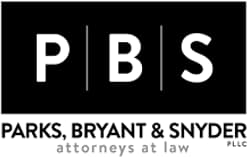
An Introduction to Mediation: Thinking Outside the Box in Tennessee Family Law
Have you heard about mediation? It’s one of the most important recent developments in our legal system and, in particular, the practice of family law. Courts in Tennessee (and across the country, for that matter) are increasingly relying on mediation to resolve disputes. At its most basic level, mediation is negotiation carried out with the assistance of a third party. It’s another person, who doesn’t have a dog in the fight, taking a fresh look at things and helping the parties come to an agreement on their dispute.
How do Disputes Get Resolved in the Legal System?
First of all, we are talking about disputes that are difficult. If they were easy, the parties would have already worked them out. The judicial system is there to provide a means of resolving any kind of dispute. Party A hires an attorney and files a suit. Party B hires an attorney, and the battle is joined. The attorneys are the generals determining how the battle proceeds. After extensive exchanges and exploration of evidence, the judge or jury steps in to hear both sides and reach a conclusion, which often leaves one or even both parties dissatisfied.
The system works, but it is expensive and time-consuming, and resolution can occur a good while after the suit was started. Is there another way, even a better way, of resolving difficult disputes? About 40 years ago, some dispute resolution pioneers began what has become a strong trend toward using mediation as an alternative way of resolving disputes. The theory behind mediation is that most disputes in the judicial system are resolved by negotiation before a trial is needed, so why not help the parties reach a negotiated settlement before the cost and time of litigation become a burden?
What is a Mediator?
A mediator is the new party added to the dispute resolution process. A good mediator is trained in the art of bringing differing points of view to a common ground the disputing parties can live with. A mediator brings several skills to the task:
- deep listening
- patience
- inventiveness
- perseverance
- empathy
- wisdom
- and a careful understanding of each party’s needs and wants
A mediator conducts mediation sessions with full fairness to both sides and finds areas of common interest that can bridge the gap between the parties’ positions. A mediation session involves all the parties, their attorneys, and the mediator. The session is private and things said during mediation are confidential and cannot be used in court.
A successful mediation ends with an agreement which the parties themselves have helped craft. The mediator has no power whatsoever to impose an agreement on the parties. Instead, the parties remain in full control of the outcome, and any agreement reached must be satisfactory to both sides of the dispute. Rules of evidence used in court do not apply in mediation, which allows a freer range of discussion about the dispute and, importantly, what drives or underlies the dispute. Each party gets to freely state its case, while benefiting from hearing and learning where the other side’s positions are coming from.
A mediated agreement is reduced to writing, which when properly signed becomes a contract between the parties. Studies show that parties who have mediated an agreement have a high level of compliance with carrying out the terms of the agreement. Parties sometimes are less inclined to faithfully carry out a court order that they did not agree to. Mediation can conclude, without a contested trial, a dispute that has landed the parties in court. Mediation can be especially useful where the parties will have a long-term relationship, such as divorcing parents who will share parenting responsibilities until the children are adults and sometimes longer than that.
As trained, experienced mediators, we at Parks Snyder believe strongly that our clients should know about the option of mediation. We use mediation as a strong, usually successful, tool to help clients reach results with which they are pleased. Mediation can bring to clients real benefits, including
- Peace
- Closure
- Better relationships
- Fairness
- Hope
- Forgiveness
- Prevention
Is Mediation Right For Me?
There are very few legal disputes, particularly in family law, that cannot benefit from mediation. If you haven’t realized it yet, when compared to litigation, mediation saves time and money. It also keeps disputes private so your personal business isn’t argued out in court for everyone to hear. The majority of cases that go to mediation settle that very day, but of the ones that don’t many end up settling shortly thereafter. Sometimes people just need a couple days to think about what was said during the mediation.
If you have any questions about mediation or any other aspect of family law in Tennessee, we invite you to contact us now.




